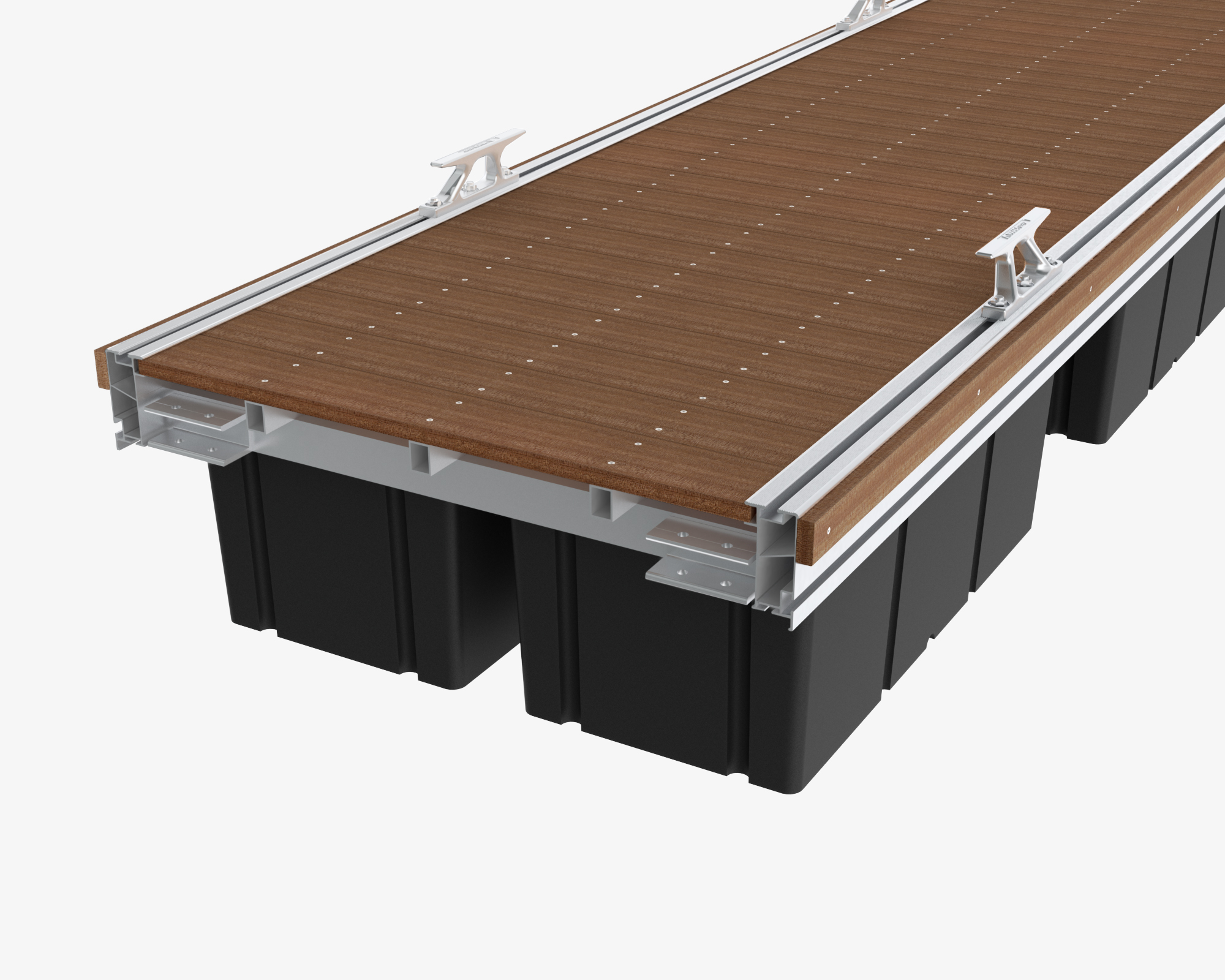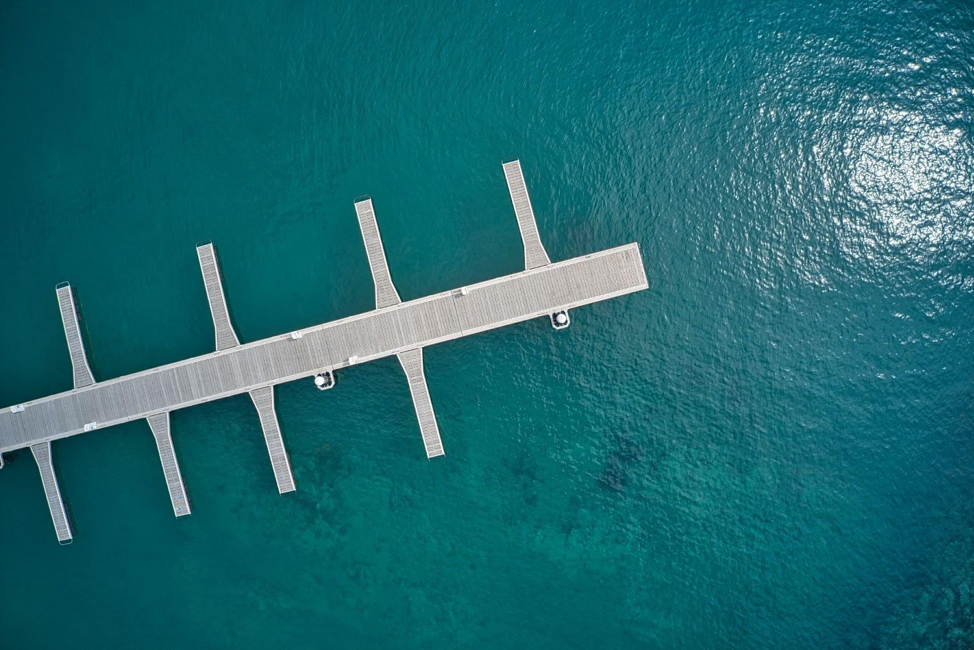The Ultimate Guide to Choosing the Ideal Floating Docks
Selecting the ideal floating dock requires a comprehensive understanding of different elements that affect both performance and longevity. Variables such as dock types, products, and crucial functions considerably influence your decision-making procedure. Considerations around installation and spending plan can even more make complex the option. By taking a look at these elements methodically, one can make sure an investment that not only satisfies immediate needs but additionally boosts overall residential or commercial property worth. As we check out these important elements, it ends up being clear that the best choices can cause a useful and lasting option customized to your specific requirements.
Recognizing Floating Dock Types
When selecting a floating dock, it is vital to understand the various types readily available, as each offers distinct purposes and applications. Floating docks mainly fall under three categories: modular, stationary, and pontoon docks.
Modular docks are composed of private areas that can be easily set up or reconfigured, making them excellent for transforming water degrees and varied usages, such as entertainment tasks or commercial procedures. Their flexibility allows for customization based on particular needs.

Pontoon docks are defined by their resilient structure, usually composed of multiple pontoons that supply stability and assistance. They are particularly appropriate for bigger vessels and are frequently used in marinas or for beachfront residential properties. Comprehending these kinds aids in picking the most proper floating dock to fulfill particular demands, guaranteeing optimum performance and safety and security.
Key Products for Resilience
Picking the ideal products for floating docks dramatically impacts their toughness and long life. One of the most usual materials include timber, plastic, steel, and composite materials, each offering unique benefits and constraints.
Wood, usually favored for its aesthetic charm, calls for regular upkeep to withstand moisture and degeneration. Pressure-treated lumber can improve resistance to rot, however it might still be vulnerable to insects and weathering.

Plastic docks, made of high-density polyethylene (HDPE), are resistant to deterioration, UV radiation, and impact, making them a popular choice for seaside atmospheres. Their lightweight nature additionally assists in simple installation and moving.
Steel docks, commonly created from aluminum or galvanized steel, provide phenomenal stamina and sturdiness. They are immune to deterioration, particularly when dealt with, yet may call for additional insulation to stop warm accumulation in warm climates.
Composite products, combining timber fibers and plastics, deliver the advantages of both wood and plastic, resisting dampness and fading while requiring marginal maintenance. - floating dock company
Ultimately, the option of materials must align with ecological problems, intended usage, and upkeep preferences to make sure the floating dock stays useful and aesthetically pleasing gradually.
Important Functions to Take Into Consideration
While the option of products is crucial, thinking about crucial attributes for floating docks is similarly important to guarantee ideal efficiency and user fulfillment. One crucial attribute to evaluate is the dock's buoyancy capability, which determines exactly how much weight it can sustain without submerging. dock company. This is important for fitting watercrafts, individual boat, and even recreational activities
Furthermore, mobility is a substantial factor to consider. Depending upon your requirements, you might desire a dock that is easy to disassemble and carry, particularly if you intend to relocate it seasonally. Stability is another important function; look at this site a well-designed floating dock must decrease movement triggered by wind and water currents, offering a safe system for individuals.
Security functions, such as non-slip surface areas and rounded sides, are likewise essential to stop crashes, specifically in damp problems. Furthermore, consider the availability of devices, such as ladders, bumpers, and cleats, which can improve the performance of your dock.
Installment and Upkeep Tips
Setting up and keeping a drifting dock needs careful preparation and interest to information to guarantee its longevity and optimum performance. Begin by picking a proper location that minimizes direct exposure to strong currents and waves, which can create deterioration. Ensure that the water deepness is adequate for the dock's elevation which it is secured safely to prevent movement.
During setup, follow the supplier's guidelines carefully, as improper setting up can compromise stability. Usage top notch materials resistant to deterioration, such as aluminum or treated timber, to improve resilience. Regularly check all parts, including floats, adapters, and securing systems, for signs of damage or wear.
If your dock uses flotation devices, ensure they remain cost-free and undamaged from punctures. By adhering to these setup and upkeep tips, you can take pleasure in a useful and reliable floating dock for years to come.
Budgeting for Your Dock
Budgeting for your dock is a critical step that can considerably influence your total complete satisfaction and financial investment in a waterfront building. Establishing a clear spending plan aids you browse the different options readily available and guarantees you make notified decisions that straighten with your monetary capabilities.
Begin by determining the dimension and style of the dock you require, as these factors will substantially affect the price. Floating docks can differ dramatically in cost, depending upon materials, buoyancy, and features like ramps and accessories. Research different suppliers and suppliers to compare costs and comprehend the market value.
Along with first prices, take into consideration continuous expenses such as maintenance, insurance policy, and prospective fixings. Assign funds for these recurring expenses to stay clear of surprises down the line. It's additionally prudent to allocate any essential licenses or examinations, which may be called for by local guidelines.
Lastly, bear in mind the possible return on financial investment. A well-planned dock can boost your building's value and appeal, supplying a positive financial influence in the long-term. By budgeting properly, you can ensure that your dock satisfies your needs without jeopardizing your economic stability.
Final Thought
To conclude, selecting the excellent floating dock necessitates a comprehensive analysis of numerous factors, including dock types, products, essential attributes, and installment processes. Prioritizing toughness and compliance with regional laws ultimately improves capability and building value. Careful consideration of monetary restrictions will even more make sure an audio financial investment. By sticking to these standards, people can make educated decisions that advertise lasting contentment and use in weblink water settings.

While the selection of materials is vital, considering vital attributes for floating docks is equally important to make sure optimum efficiency and user complete satisfaction.Establishing up and keeping a drifting dock requires careful planning and interest to information her explanation to guarantee its long life and optimal performance. Floating docks can vary substantially in rate, depending on materials, buoyancy, and functions like devices and ramps.In verdict, choosing the optimal floating dock requires a complete evaluation of numerous factors, including dock kinds, products, crucial attributes, and installment procedures.